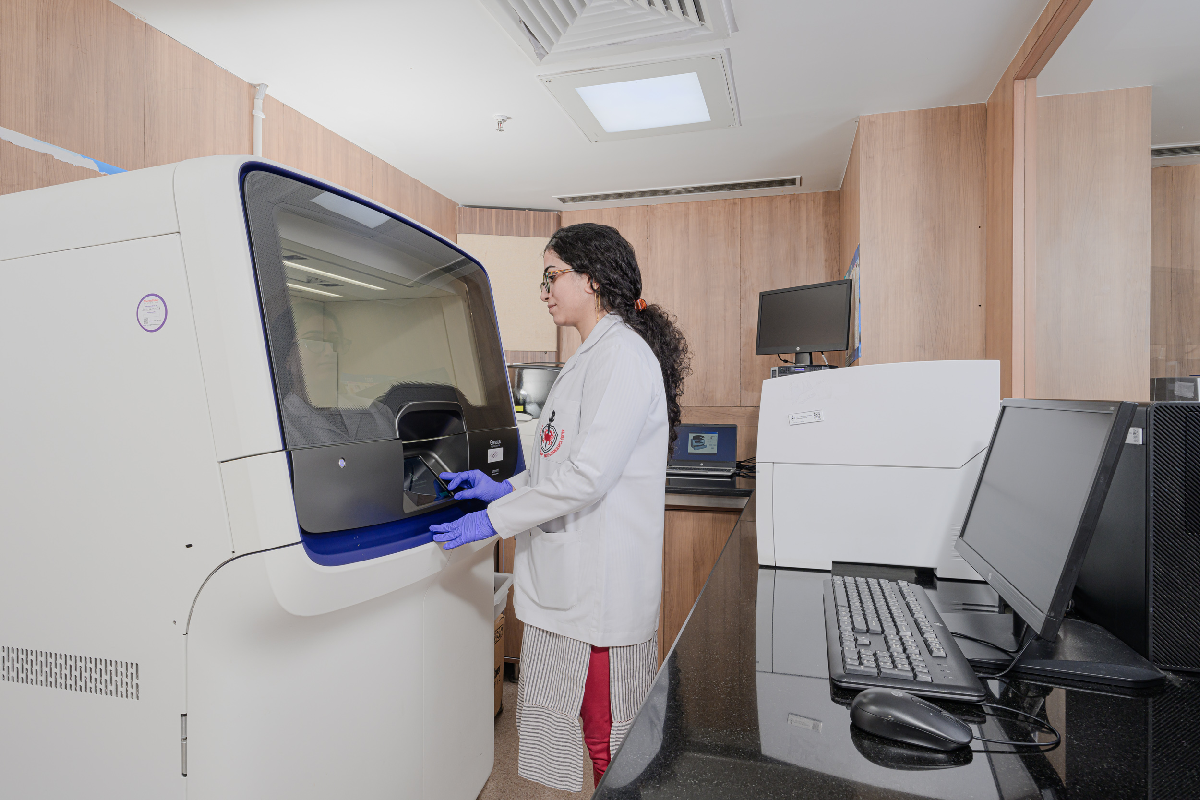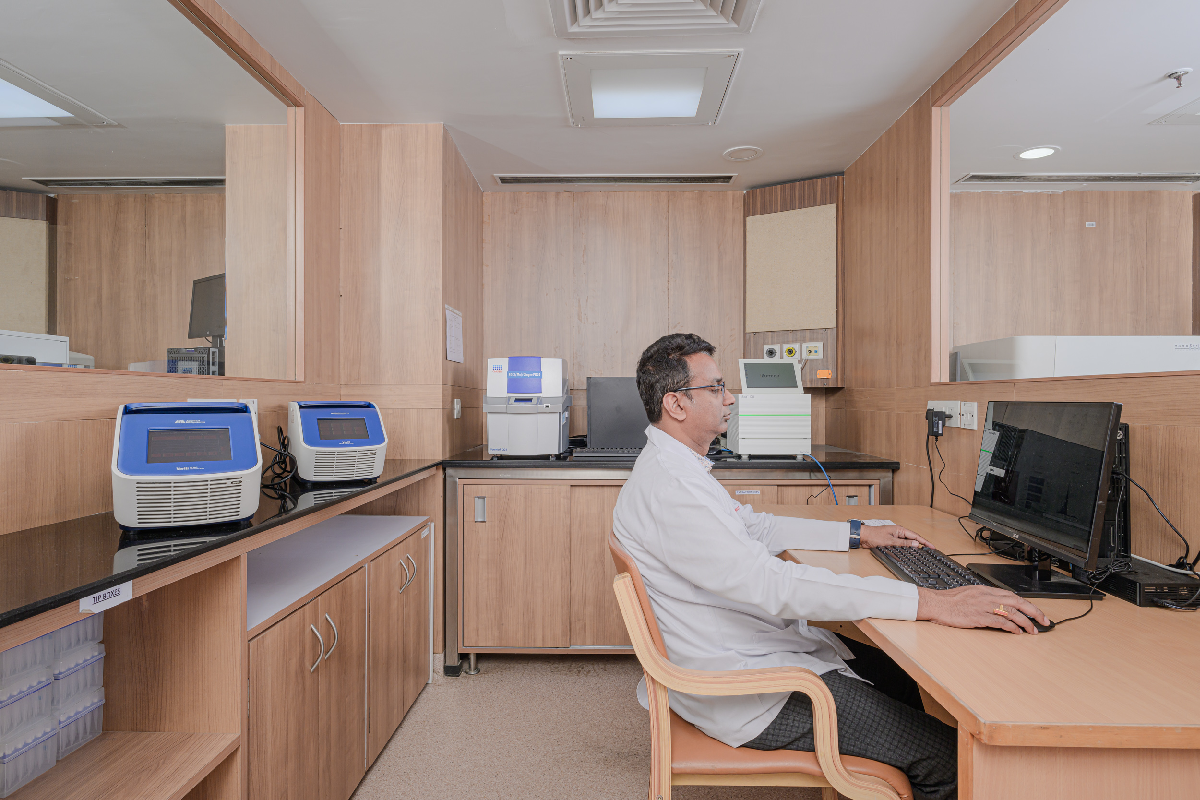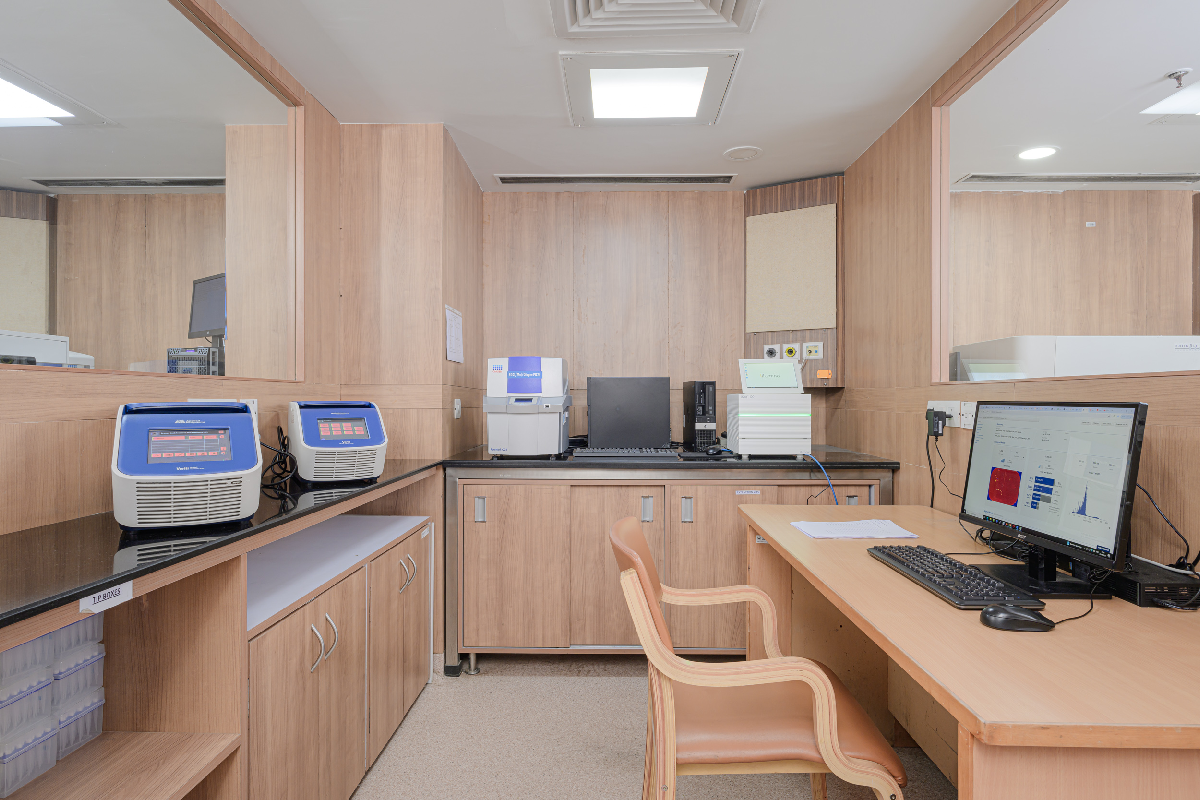MOLECULAR LABORATORY




Overview
Molecular diagnostics at RGCIRC is a NABL accredited laboratory developed under the leadership of Dr Anurag Mehta. It is one of the most dynamic and transformative departments with interplay of genomic knowledge, laboratory medicine and state of art technology. Molecular laboratory menu has steadily grown in all applications ranging from infectious disease, genetic, and oncology testing. It currently offers more than 100 tests (Directory of Services). This varied portfolio is realized by diverse complex machinery facilitating tests for solid organ and hematological malignancies. The available testing platforms range from real time PCR for single gene testing, Fluorescent In situ Hybridization, Pyrosequencing, Sanger sequencing for miscellaneous applications including tests based on fragment length analysis to high throughput Next Generation sequencing for genetic predisposition, tumor specific panels, tumor mutation burden and liquid biopsy. Laboratory maintains robust external and internal quality assurance programs in the face of emerging technologies, and an evolving regulatory landscape of Precision Medicine biomarkers.
Knowledge Centre
Special Features:
- Inherited Cancer Syndromes
- HRR gene testing
- Clinical exome sequencing
- Germline Lynch Syndrome testing
- Hereditary Breast – Ovarian Cancer Syndromes & BRCA Testing
Cancer occurs by interplay of environment, lifestyle and a minor component of susceptibility in 85% of patients. In minority of individuals with ovarian cancer (~14%) or breast cancer (approximately 5%) or prostate cancer (~ 5%) or pancreatic cancer (~ 5%) the mutation in the BRCA1 or BRCA2 gene plays an all-important and overarching role. People with BRCA mutations have a lifetime risk of developing these cancers as given in Table below.
| Cancer Type | Germline BRCA1 mutated | Germline BRCA2 mutated | No. of times the risk in Germline BRCA mutated population |
|---|---|---|---|
| Breast Cancer Female | 70% | 40% | 4-5 folds |
| Ovarian Cancer | 50% | 30% | 30 folds |
| Breast Cancer Male | 1.20% | 6.8% | 50 folds |
| Prostate Cancer | 2% | 5% | 3-8.6 folds |
| Pancreatic Cancer | 1% | 1% | 2-4 folds |
BRCA testing is recommended for all patients of ovarian cancer, some patients of Breast cancers, all patients with metastatic prostate and pancreatic cancers. It is important to identify if cancer is due to a BRCA1 or BRCA2 mutation because it provides you and your doctors with information that can help treat your cancer and to reduce your risk of future cancer. In addition, BRCA testing is also recommended for First Degree Relatives from 3 generations of a breast / ovarian/ pancreatic/prostate cancer patient with BRCA mutation to identify mutation carriers and encourage them to adopt risk-reducing strategies
Test Menu
| HAEMATOLOGY | INFECTIOUS DISEASES | SOLID ORGAN MALIGNANCIES |
|---|---|---|
| Acute Myeloid Leukemia Translocation Extended Panel | Quantitative Test for HBV | BRAF Mutation Analysis By Real Time Qualitative PCR |
| TPMT Genotyping | Quantitative Test for HCV | NRAS & KRAS Mutation Testing By Real Time Quantitative PCR |
| Quantitative PCR for detection of PML-RARA | Quantitative Test for BKV | EGFR exon18-20 mutational analysis by Cobas RT-PCR |
| Qualitative PCR for JAK2 exon 12/14 | Quantitative Test for CMV | PIK3CA mutational analysis by RT-PCR |
| Comprehensive Myeloid Panel-NGS | Quantitative Test for EBV | DPYD genetic testing by PCR |
| MYD88 p.L265P Mutation Analysis | POLE mutational analysis by DD-PCR | |
| NPM1 MRD monitoring by RT-PCR | Microsatellite Instability Testing | |
| VNTR chimerism analysis | MET exon 14 skipping by Gel electrophoresis | |
| FISH testing for BMT sex mismatch XY chimerism | Methylation studies by pyrosequencing
| |
FISH testing: Break apart for
|
GIST hotspot panel | |
| Fish : RARA Break apart | Extended Solid Tumor Panel-NGS | |
| Myeloma panel (FISH) | Comprehensive 161 gene panel -NGS | |
| CLL panel (FISH) | All comprehensive 550 gene panel (including TMB+MSI) | |
BCR-ABL1
|
HRD testing | |
FISH testing:
Break apart for
|